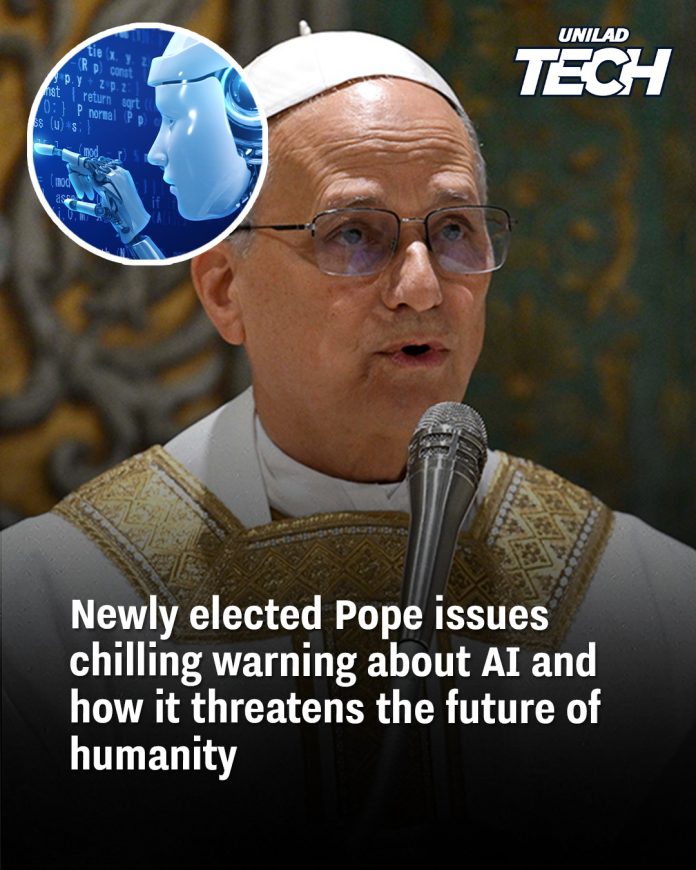In his inaugural address as the 267th pontiff of the Roman Catholic Church, Pope Leo XIV, formerly Cardinal Robert Prevost, delivered a profound warning about the potential dangers posed by artificial intelligence (AI). Identifying AI as one of the most pressing challenges facing humanity, he emphasized the need to safeguard human dignity, justice, and labor in the face of rapid technological advancements.
A Legacy of Social Teaching
Pope Leo XIV’s choice of papal name pays homage to Pope Leo XIII, renowned for his 1891 encyclical “Rerum Novarum,” which addressed the rights and conditions of workers during the Industrial Revolution. Drawing parallels between the societal upheavals of that era and today’s digital revolution, Pope Leo XIV underscored the Church’s enduring commitment to social justice in times of transformative change.

“In our own day,” he stated, “the Church offers everyone the treasury of its social teaching in response to another industrial revolution and to developments in the field of artificial intelligence that pose new challenges for the defense of human dignity, justice, and labor.”
Pope Leo XIV affirmed his dedication to continuing the reforms initiated by his predecessor, Pope Francis, particularly those stemming from the Second Vatican Council. He emphasized the importance of an inclusive Church that listens to the faithful and stands in solidarity with the marginalized. His episcopal motto, “In Illo uno unum” (“In the One, we are one”), reflects his Augustinian roots and commitment to unity within the Church .
The Pope’s concerns about AI are not isolated. The Vatican has previously addressed the ethical implications of emerging technologies. In a comprehensive document titled “Antiqua et nova (Ancient and New),” the Church warned of AI’s potential to disrupt human relationships, labor, and education. The document highlighted risks such as worker exploitation, developmental issues in children due to AI interactions, and the existential threat posed by autonomous weapons and deepfake media.
Pope Leo XIV’s remarks align with these concerns, urging a balanced approach that recognizes both the benefits and potential perils of AI. He called for a reevaluation of the ethical frameworks guiding technological development to ensure that AI serves humanity rather than undermines it.
In his address, Pope Leo XIV called upon global leaders, technologists, and the faithful to engage in a collective effort to address the challenges posed by AI. He emphasized the need for international cooperation to develop regulations that uphold human rights and dignity in the digital age.

“Let us take up this precious legacy and continue on the journey, inspired by the same hope that is born of faith,” he urged, highlighting the Church’s role in guiding ethical discourse in an era of rapid technological change.
Pope Leo XIV’s warning serves as a timely reminder of the ethical considerations that must accompany technological progress. As AI continues to evolve and integrate into various aspects of society, his call for vigilance and moral responsibility underscores the importance of ensuring that such advancements enhance, rather than diminish, the human experience.
By drawing from the Church’s rich tradition of social teaching and emphasizing the need for ethical reflection, Pope Leo XIV positions the Catholic Church as a vital voice in the global conversation about the future of AI and its impact on humanity.

















